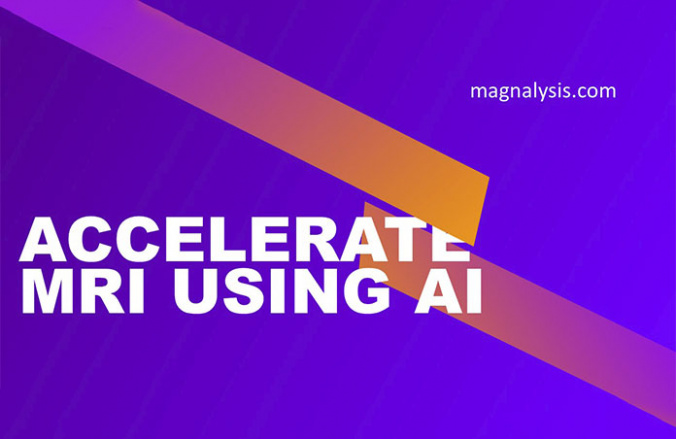Magnalysis
Magnalysis
Supported : 251 €
of 250 € minimum goal
Pitch
Magnalysis is a medical image reconstruction, analytics and storage service that connects magnetic resonance imaging machine directly to the cloud and was originally designed for radiologists and healthcare professionals who need to obtain fast and high quality MRI scans. We offer up to 50% acquisition time reduction by introducing convolutional neural networks and providing hospitals with the central ledger for imaging data that is accessible from every computer with a steady internet connection.
Problem
On average time necessary to obtain a single MRI scan is 45 minutes. Afterwards, radiologist has to manually go through the pile of images, decide on a diagnosis and input it into the system, a personal access to which will later be available both to the patient and it’s attending physician. Very high prices of MRI scans, that can reach 1000€ in the EU and even more in the US, accompanied by long queues are limiting the use of this safe and detailed diagnostic technique. After performing a market research based on 100 radiologists’ activity and their routines, Magnalysis team has identified three main bottlenecks in current magnetic resonance imaging practices:
1. Long queues
2. High cost
3. Absence of a central ledger and lack of automation
Solution
First, MRI image is obtained when sensors read information from relaxing atoms in human body.
Next, sensor data is stored in a 2k space matrix. It is a special data storage type. For simplicity you can imagine it as an excel table with complex numbers.
Some information in MRI k-space (so called excel table) is redundant, basically it is duplicated. If we imagine a case that we have an ideal image, when there are no errors in the excel, then it is possesses a peculiar mirrored property known as conjugate (or Hermitian) symmetry. It means, if you put a mirror to one part of the excel table, we can observe the second part of the table in the mirror image. MRI machines makes use of it with the help of Partial Fourier Averaging mode, which collects slightly more than half of the excel table thereby reducing time. As result PFA mode helps to reduce time of MRI acquisition to 50% (in ideal case). However, it is rarely used due to magnetic field inhomogeneity, susceptibility effects, eddy currents, physiologic motion and other factors that decrease quality of the image.
We at Magnalysis, are creating a Convolutional Neural Network that improves the quality of these images. What is most important that the quality is enhanced while the scan takes place. In order to achieve it we are connecting MRI machine via internet to our server where computation takes place.
Finally, improved image is in Magnalysis platform, besides we offer RadiologyAssist © that helps finding the diseases on MRI. These both solutions are aimed at reducing the time it takes for a single MRI scan, reducing human error and spending more time with patients.
We are supporting our system with extensive research, with the first paper to be published on the RSU International Scientific conference, which won 3rd place in Radiology section https://drive.google.com/file/d/1ORQgAlx4JfZS3YARdiJIloPAXQqXh0XL/view (p. 34 “COMPLIANCE OF RAW MRI DATA WITH LOTKA-VOLTERRA COMPETITION MODEL USING K-MEANS CLUSTERING”)

